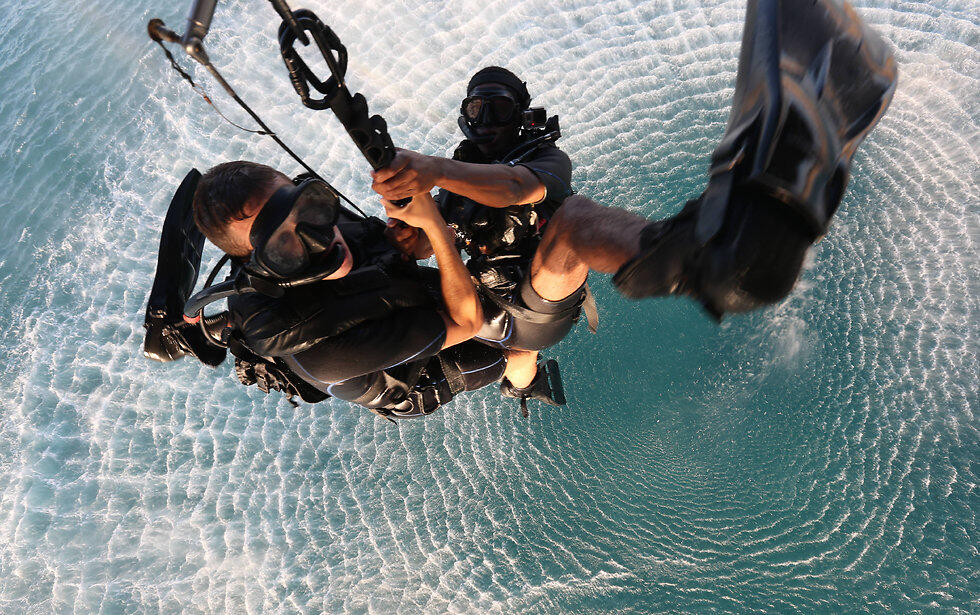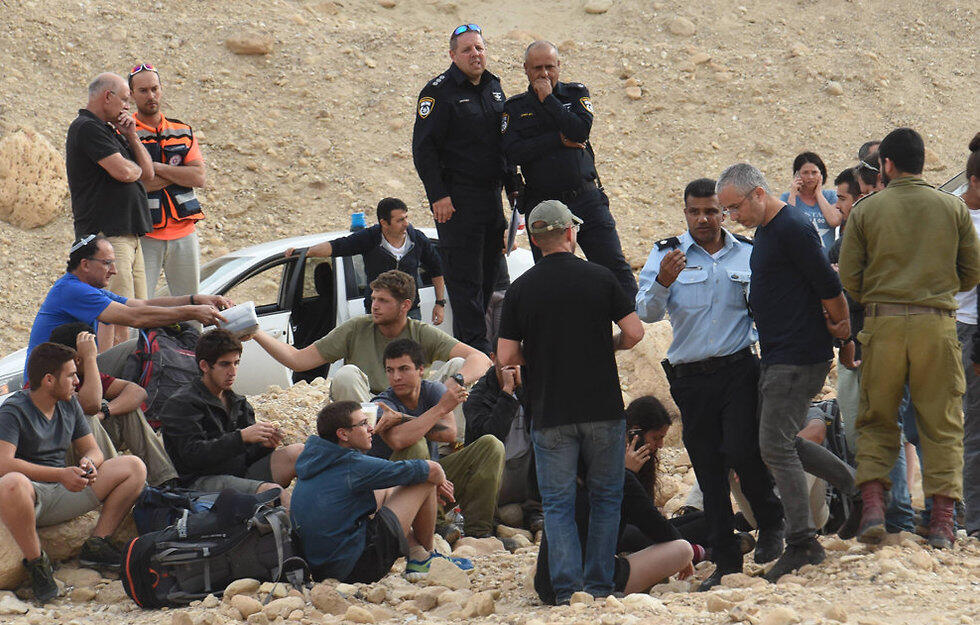Getting your Trinity Audio player ready...
One Friday afternoon, after yet another challenging mission, Guy M. changed out of his fatigues and headed home for a restful Shabbat.
The 24-year-old combat soldier and paramedic in IDF Unit 669 was desperately in need of a chance to stop and breathe, but the reprieve never came.
“We’d been planning a major operation behind enemy lines and the pieces fell into place that weekend, less than 24 hours after we’d returned from our last mission," he says.
"So that’s how I found myself changing back into my blood-stained uniform, boots still covered in mud from the last rescue, getting onto a helicopter and flying off on a mission.”
Guy’s story illustrates the life of a combat soldier in Unit 669, the Combat Rescue and Evacuation Unit of the Israel Air Force, whose duties often run at a furious pace - from rescue missions to secret military operations.
Guy served for about five years in Unit 669, and throughout this entire period – from strenuous training to through life-saving rescues and the most daring of military operations – he carefully documented his experiences.
The result was the best-selling book "From Zero to One Hundred," a compelling narrative about one of the IDF's top special ops units.
Its release was approved by military and ministerial censors, on the condition that Guy’s last name remain secret.
The book does far more than describe the experiences - often harrowing - of a combat soldier in a special ops unit. It is also a journal that reveals his inner thoughts and feelings.
“For me, the writing was a tool to reflect on life and eventually it also became a process of trauma therapy,” Guy says.
“It became part of my routine. Before I went to sleep or started guard duty, I’d pull out my little notepad and write. The emotional pressure that builds up inside is like water at high tide, it needs an outlet. Writing gave me this outlet, so I wrote.”
“When I was in action, my adrenaline was pumping and so there were moments when I felt on top of the world, and at other times, because of the punishing training and exhaustion, I felt like a piece of dirt,” he says.
Looking back, Guy admits that this type of professional preparation was necessary for the execution of top-level rescue missions under any circumstances – including enemy fire.
“You must be meticulous at all times since it can be the difference between life and death," he says.
When Guy speaks of extreme circumstances, that inevitably leads to the Tsafit Ravine tragedy in April 2018, in which 10 students of the Bnei Zion pre-military academy were swept away in a flash flood. It was a national and personal catastrophe.
“It’s engraved not only in my own memory but also on our unit’s collective memory, because just about every fighter was mobilized that day," he says.
"Soldiers who were already on their way home on that Thursday turned right around and within 15 minutes were in the air with their equipment.
"Even after we wound up the rescue operation, the team was kept on duty, because the heavy flooding in the Judean Desert created a whole series of emergencies. That perfectly summarizes the greatest ability of the unit – to go from zero to one hundred in minutes.”
It was the inspiration for the title of his book, and Guy doesn’t spare his readers any of the details about what happened there.
“After I earned my Unit 669 pin, it became less complicated to write. We would come back from a mission, get off the helicopter, prep the equipment, and then I would sit in front of the computer and let it all out.”
“I saw how it would be written during the action itself. On the one hand, this was very good for the writing because it made it more authentic, but on the other hand, it means that those images, odors, memories, became ingrained deeper in my mind.”
This touches on a subject that isn’t heard in connection with Unit 669: how to cope emotionally with the daily interaction with the injured and dead.
“There is training to prepare us for these situations, but when you are a group of 18-year-olds facing these things day in and day out, in the end, you absorb it. It affects you.”
Today, Guy is a medical student at Tel Aviv University, the oldest son of a proud family of combat soldiers.
His sister is an officer who is training cadets at the IDF Officer Leadership Training Academy, his brother is serving in a different elite combat unit, and their youngest sister is still in high school.
“We grew up with disciplined parents, who would get up at 5 in the morning to exercise and meditate,” Guy says.
“My mother runs and swims long distances and makes me feel like the most unfit person in the house. My family also ran a karate school. Maybe I had to bring home my Unit 669 pin to balance things out!”
“The most active branch of the IDF is the Air Force,” says Guy. “For every Air Force mission across Israel's border, no matter where it is, the IDF will not send a pilot out without the ability to bring him or her back home in an emergency. This is our mission.”
Now that the book is out, what's next in Guy's story?
"Everyone tells me that the book should be translated into English and made into a movie so non-Israelis will know what really happens in the IDF special forces."



